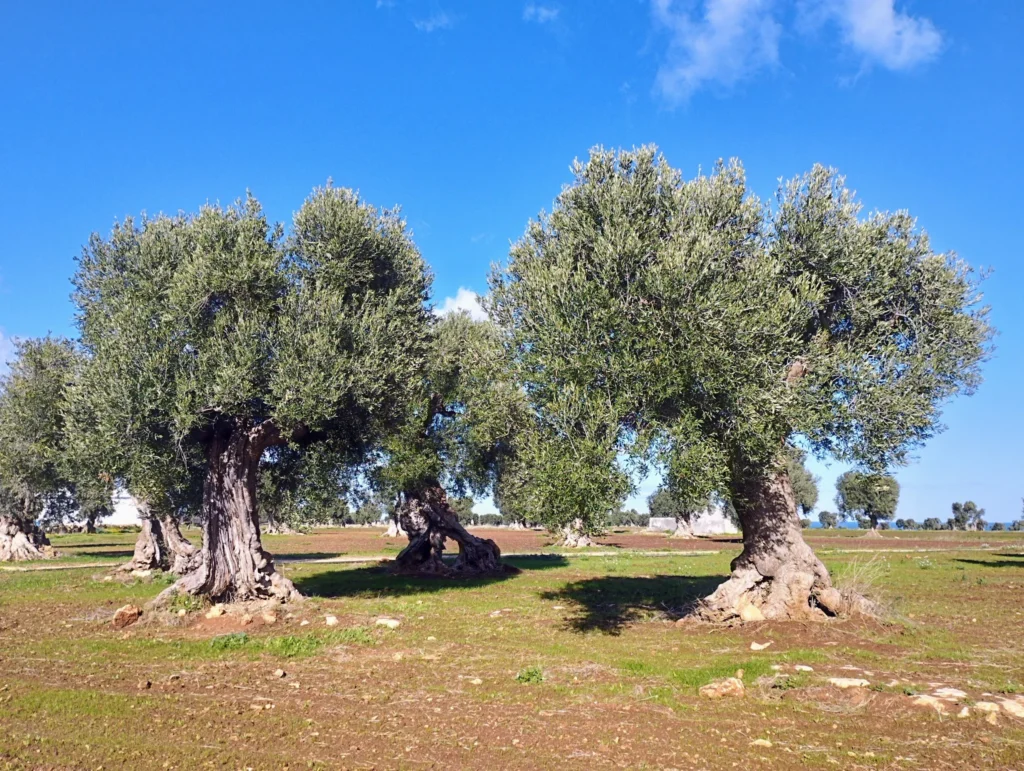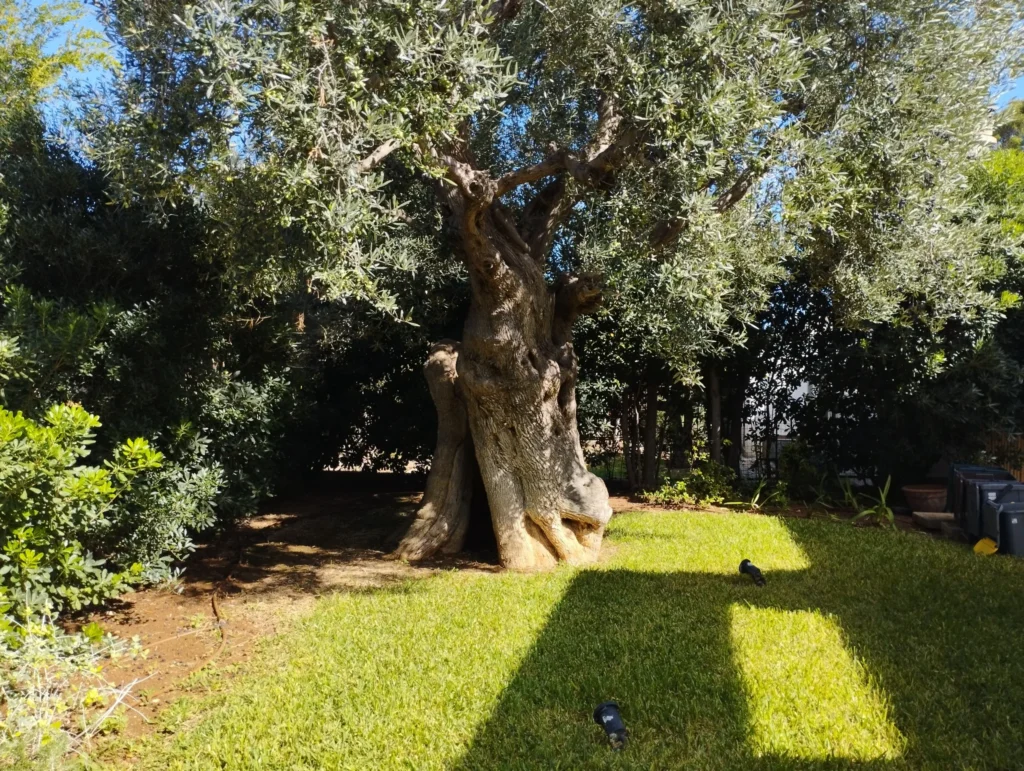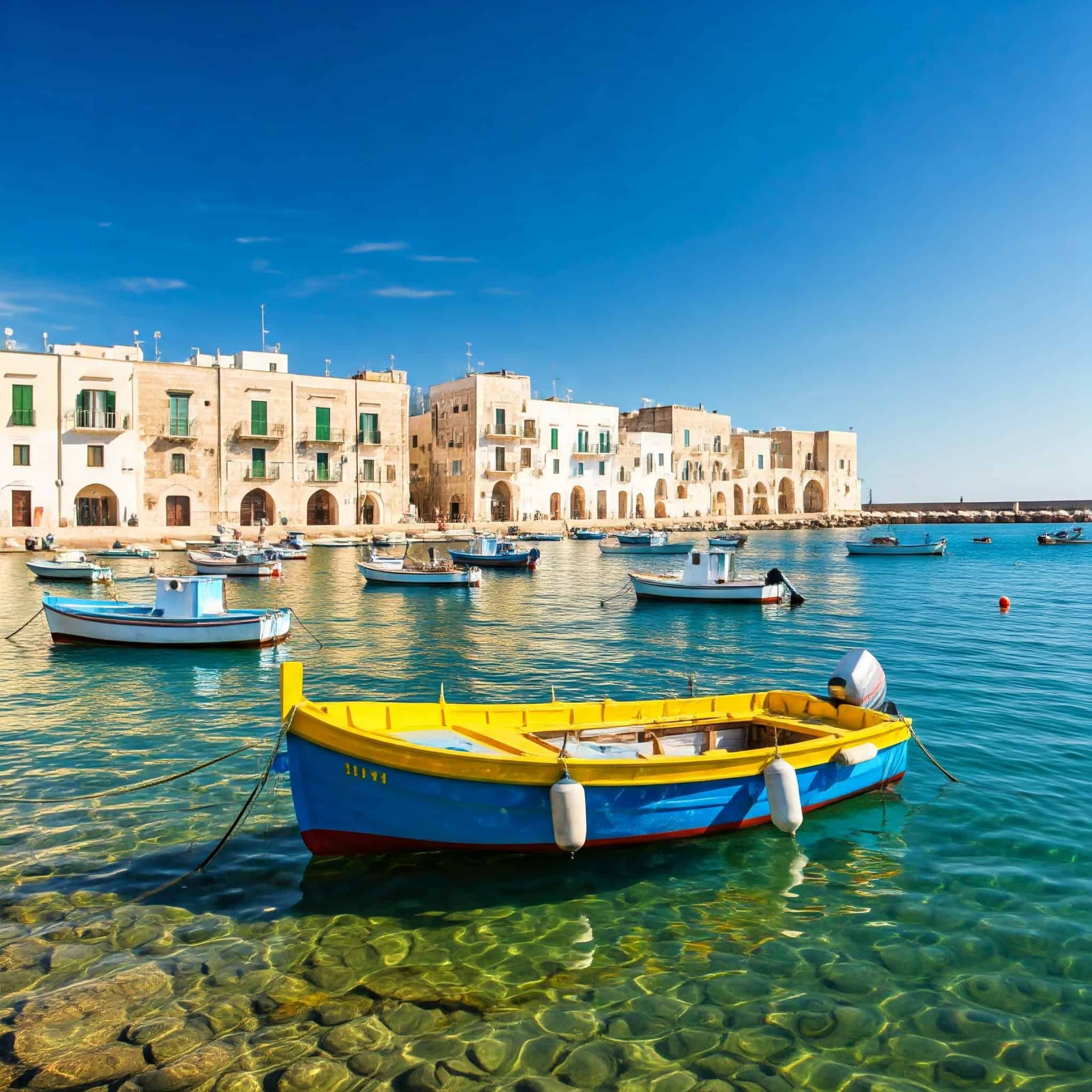Guardians of Time: Discover Apulia’s Ancient Olive Trees
In the heart of Southern Italy lies one of Apulia’s most authentic treasures: its ancient olive trees. These living monuments are more than just trees – they are silent witnesses to centuries of Mediterranean culture, tradition, and rural life. With roots deep in Puglia’s rich red soil, they connect us to the generations who have shaped this land through the art of olive oil production, a signature of the region’s enogastronomic identity.
Walking among these centuries-old olive groves is a unique experience of peace and introspection. Their twisted, sculptural trunks seem carved by time itself, shaped by sun and wind. Every olive tree tells a story, every branch a bridge between past and present — a true invitation to slow down and reconnect with nature.
The Olive Tree in Apulian Culture and Cuisine
The olive tree is a powerful symbol of abundance, resilience, and sacredness. Since ancient times, it has played a central role in everyday life — influencing the region’s culinary traditions, economy, and even spiritual beliefs. The extra virgin olive oil produced from these age-old trees is one of Apulia’s most prized local products, internationally praised for its health benefits and intense flavor.
At Villa Agapanthus, guests are welcomed with our Benvenuto Speciale — a curated selection of Apulian delicacies that includes high-quality olive oil, local wine, handmade taralli and cheeses. It’s more than a welcome gift: it’s the beginning of an immersive travel experience made of authentic taste, luxury, and cultural depth.
For an inspiring journey into the myths and legends of Salento’s ancient olive trees, read this article ➡️ lavecchiaosteriatotu.it
To learn more about the history of olive cultivation in Monopoli, discover ➡️ eulivisecolaridipuglia.com

The Ancient Olive Tree: The Beating Heart of Villa Agapanthus
Before Villa Agapanthus – a beautiful holiday home with private pool in Monopoli – was built in 1985, the land was already home to a majestic ancient olive tree, deeply rooted in Apulian tradition. Estimated to be between 100 and 300 years old, this olive tree is more than a plant: it is the guardian of the villa and a living symbol of Puglia’s authenticity and resilience.
An Iconic Garden Among Apulian Olive Trees
When construction of Villa Agapanthus began, the workers chose to preserve and celebrate the tree by placing it at the heart of the Mediterranean garden. Today, guests can admire this natural wonder right from their bedrooms, enjoying its shade and the peaceful atmosphere it radiates.
Pure Relaxation Under Its Branches
The bedrooms of this private villa with pool in Monopoli overlook the ancient olive tree, offering a view that brings calm and harmony with nature. The soft rustling of its leaves creates a gentle soundtrack, perfect for restful sleep. At sunrise, the light filtering through the branches provides a magical and unforgettable start to the day.
An Authentic Experience of Nature and Tradition
A stay at Villa Agapanthus is a journey into the genuine beauty of Southern Italy – blending comfort, traditional Apulian cuisine, and experiential travel. The centuries-old olive trees surrounding the villa create a serene, intimate setting ideal for a relaxing holiday in Puglia focused on well-being, culture, and slow living.
📷 Want to explore the villa and its Mediterranean garden? Discover the full gallery here ➡️ www.villagapanthus.it

Centuries-Old Olive Trees: The Soul of Apulia
Ancient olive trees are more than part of Apulia’s landscape — they are its very soul. They represent the bond between past and present, between humankind and nature. With its historic olive tree at the heart of the garden, Villa Agapanthus is the perfect place to experience this deep connection in an authentic and unforgettable way. A stay here is not just a holiday — it’s a transformational journey into the true essence of Southern Italy.
🌿 Book your authentic holiday in a villa with private pool in Monopoli now:
www.villagapanthus.it
🫒 Want to learn more about Apulia’s thousand-year-old olive trees?
Visit ➡️ Millenari di Puglia


